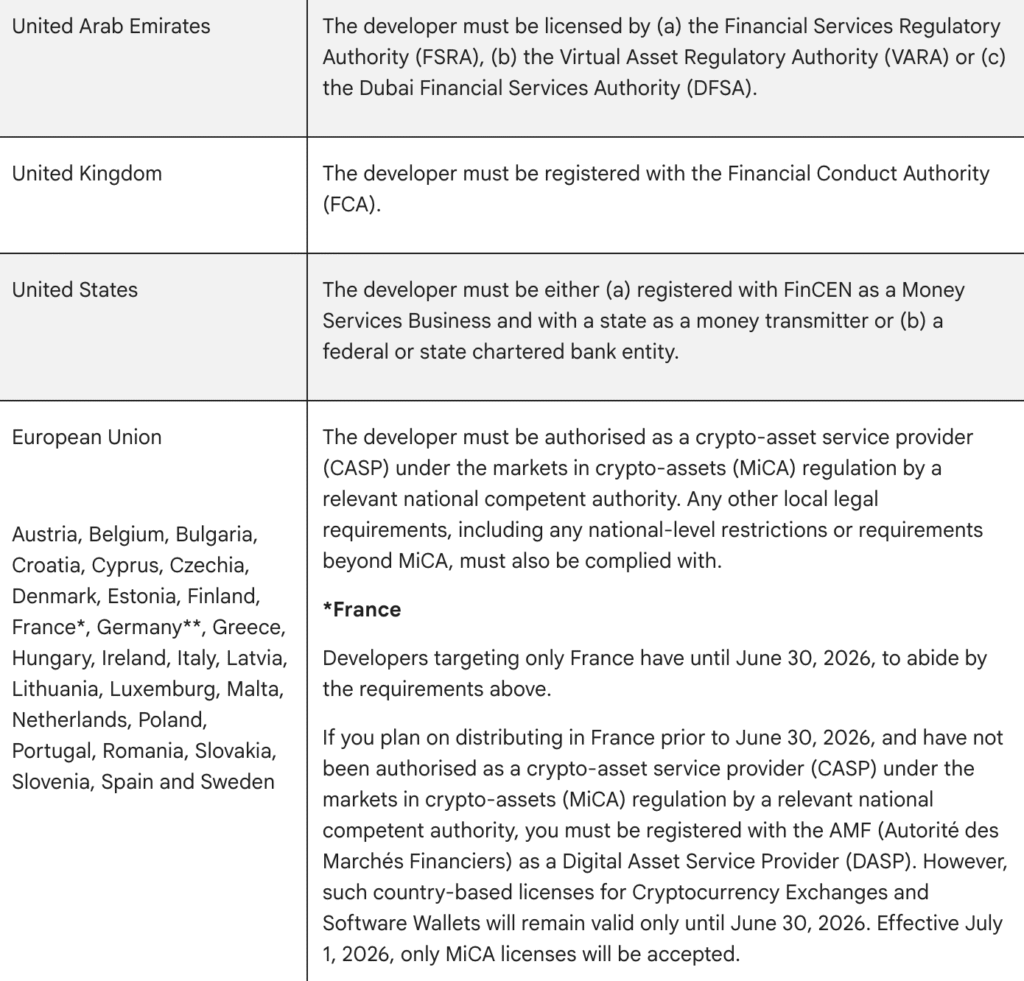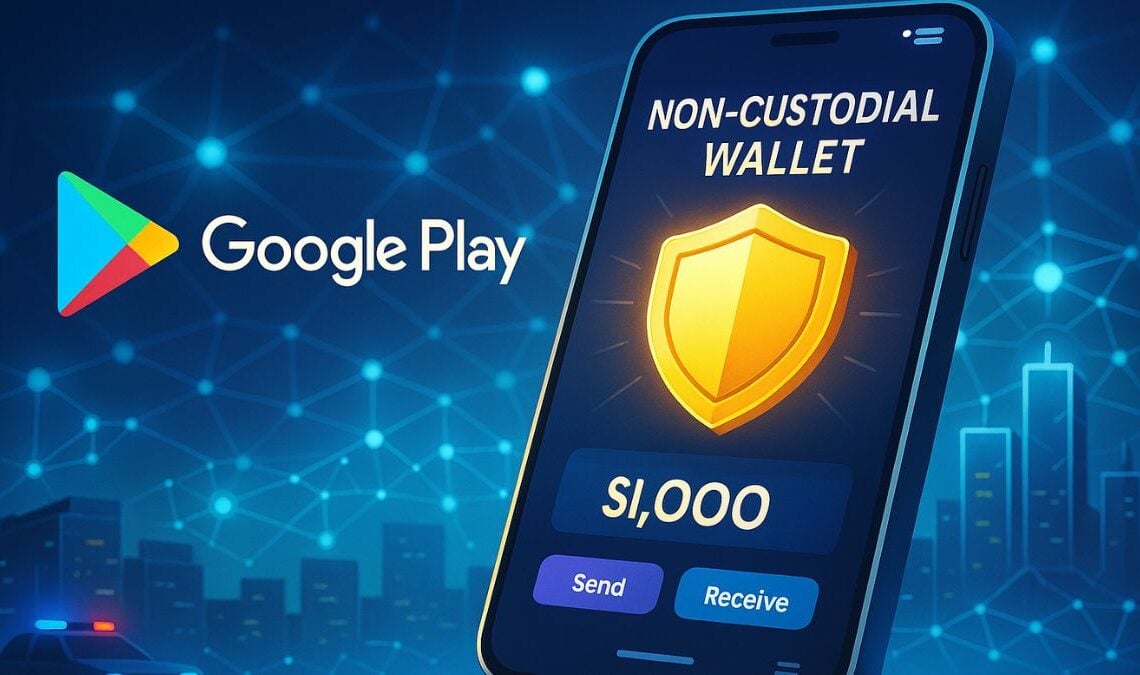Google has confirmed that its newly introduced Play Store licensing rules for cryptocurrency-related services will not apply to self-custody apps, effectively safeguarding non-custodial wallet developers from added compliance obligations.
According to Google Play’s official developer documentation, the changes — which require proof of regulatory licensing for crypto exchanges and custodial wallet providers — are designed exclusively for platforms that take control of users’ private keys. This ensures that non-custodial solutions, where users remain in complete control of their assets, can continue operating without the same regulatory hurdles.
Understanding the Policy Shift and Its Scope
Google’s updated policy guidance marks a more nuanced approach to crypto app regulation on Android devices. While the Play Store has long enforced compliance requirements for financial services, this is one of the clearest distinctions yet between custodial and non-custodial crypto services.

Google Play will require crypto wallet app developers in 15 regions to obtain licenses. Source: Google
Under the new rules, custodial wallets — where a company manages private keys on behalf of users — must now submit licensing documentation from relevant financial authorities. Self-custody apps, on the other hand, are explicitly exempt. This means that apps like MetaMask, Trust Wallet, and other decentralized wallets can continue to be listed on Google Play without these additional licensing obligations.
Why the Distinction Matters for Self-Custody Apps
Self-custody is a foundational principle of cryptocurrency. By holding their own private keys, users eliminate reliance on third-party custodians that can freeze accounts, restrict withdrawals, or even lose funds in cases of insolvency.
The difference is more than technical — it’s about true ownership. In the wake of major exchange collapses and regulatory crackdowns, self-custody has emerged as one of the most trusted methods of securing digital assets.
By keeping self-custody apps outside the scope of its new licensing rules, Google Play is effectively supporting a core value of decentralization: financial sovereignty. This approach could also encourage broader adoption by making it easier for developers to bring secure, non-custodial solutions to Android’s vast user base.
Industry Reactions and Strategic Implications
The crypto industry has largely welcomed the news. Developers see this exemption as a green light for continued innovation in wallet technology, without the fear of sudden compliance barriers that could stifle growth.
Privacy advocates also view the decision positively, interpreting it as recognition from a major tech company that self-custody apps are fundamentally different from custodial services in both function and risk profile.
At the same time, some analysts suggest that the separation between custodial and non-custodial services could help improve user education. Many newcomers to crypto still conflate the two, not realizing that custodial wallets place funds under third-party control, while self-custody means direct ownership. Clearer categorization on app stores could help bridge this knowledge gap.
The Bigger Picture: Regulation and Big Tech in Crypto
This policy change arrives at a time when governments and technology platforms are increasing scrutiny on the crypto industry. With heightened concerns over consumer protection, money laundering, and compliance, custodial services have faced growing pressure to secure appropriate licenses and meet regulatory standards.
Google Play’s decision to exempt self-custody apps aligns with global recognition that these services operate differently from exchanges or custodial wallets. By avoiding unnecessary restrictions, the policy keeps the self-custody ecosystem open to developers, while still tightening oversight where user funds are directly managed by companies.
What It Means for Developers and Users Going Forward
For developers, this update provides a degree of certainty: building and maintaining self-custody apps on Android remains straightforward, without the additional legal burden of securing financial licenses.
For users, the change reinforces the availability of trusted, decentralized options for managing crypto. Non-custodial wallets will continue to be accessible through the Google Play Store without fear of sudden removal due to licensing disputes.However, the regulatory landscape can shift quickly. While self-custody apps are safe for now, future developments in crypto policy — especially as Web3 expands — could bring new debates about how decentralized applications should be governed by app distribution platforms.










